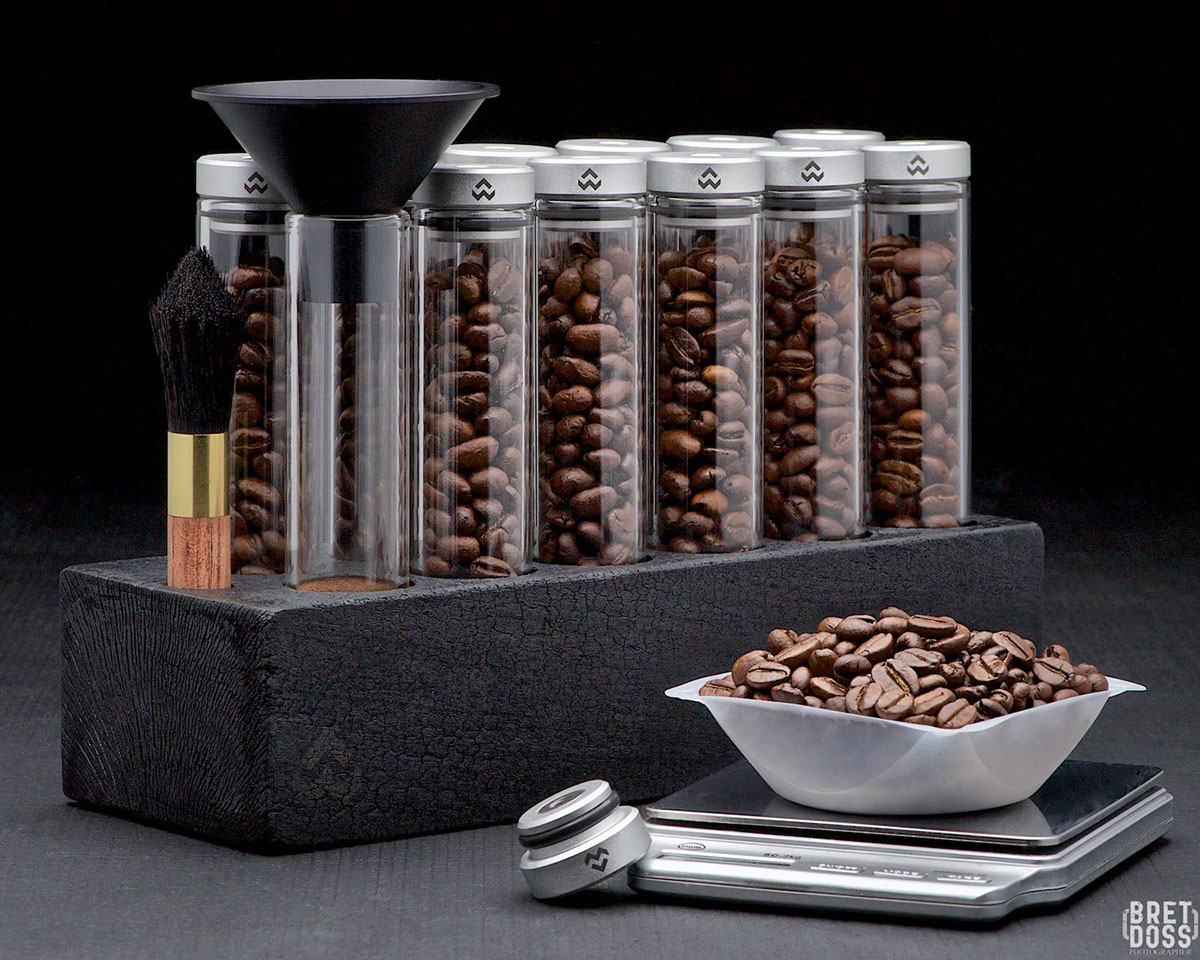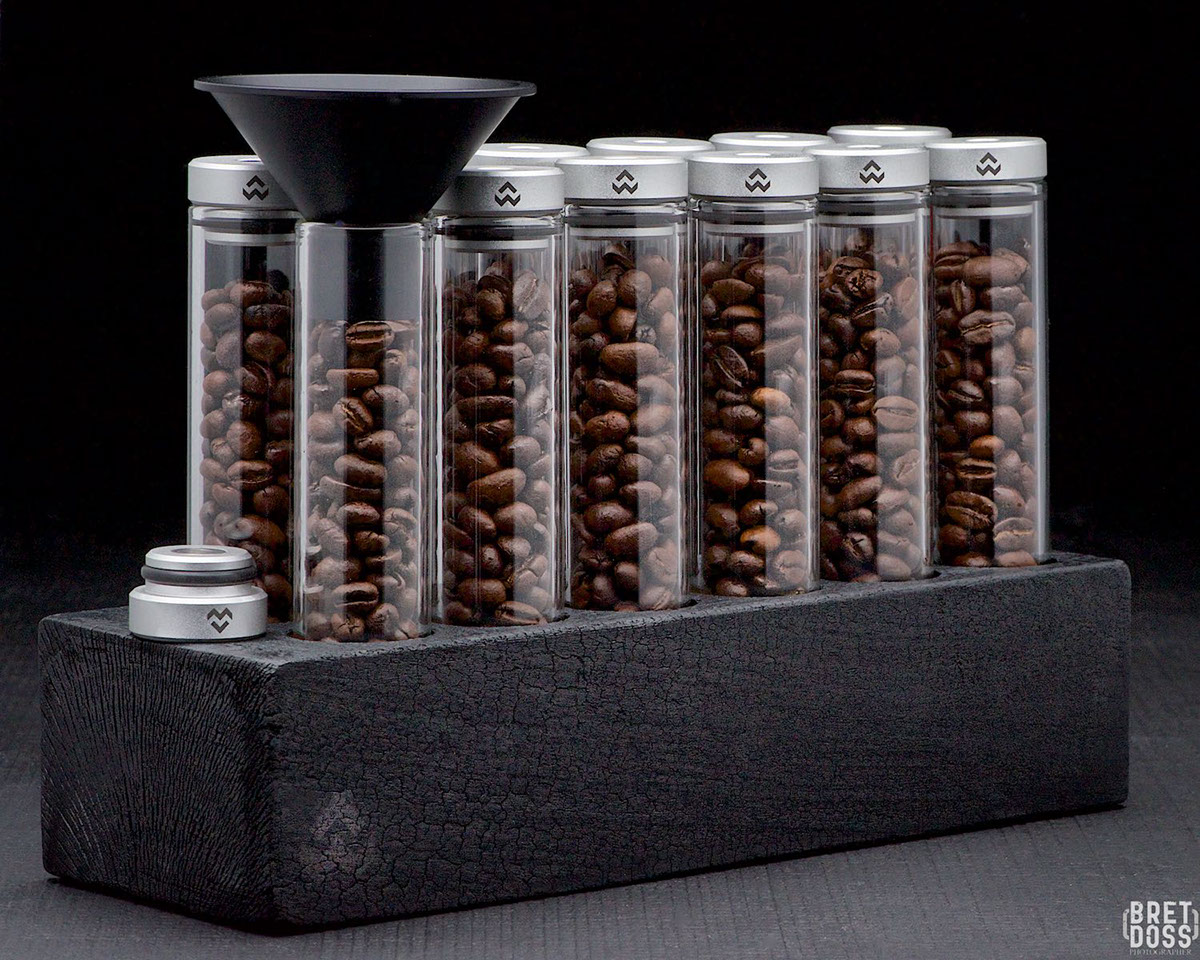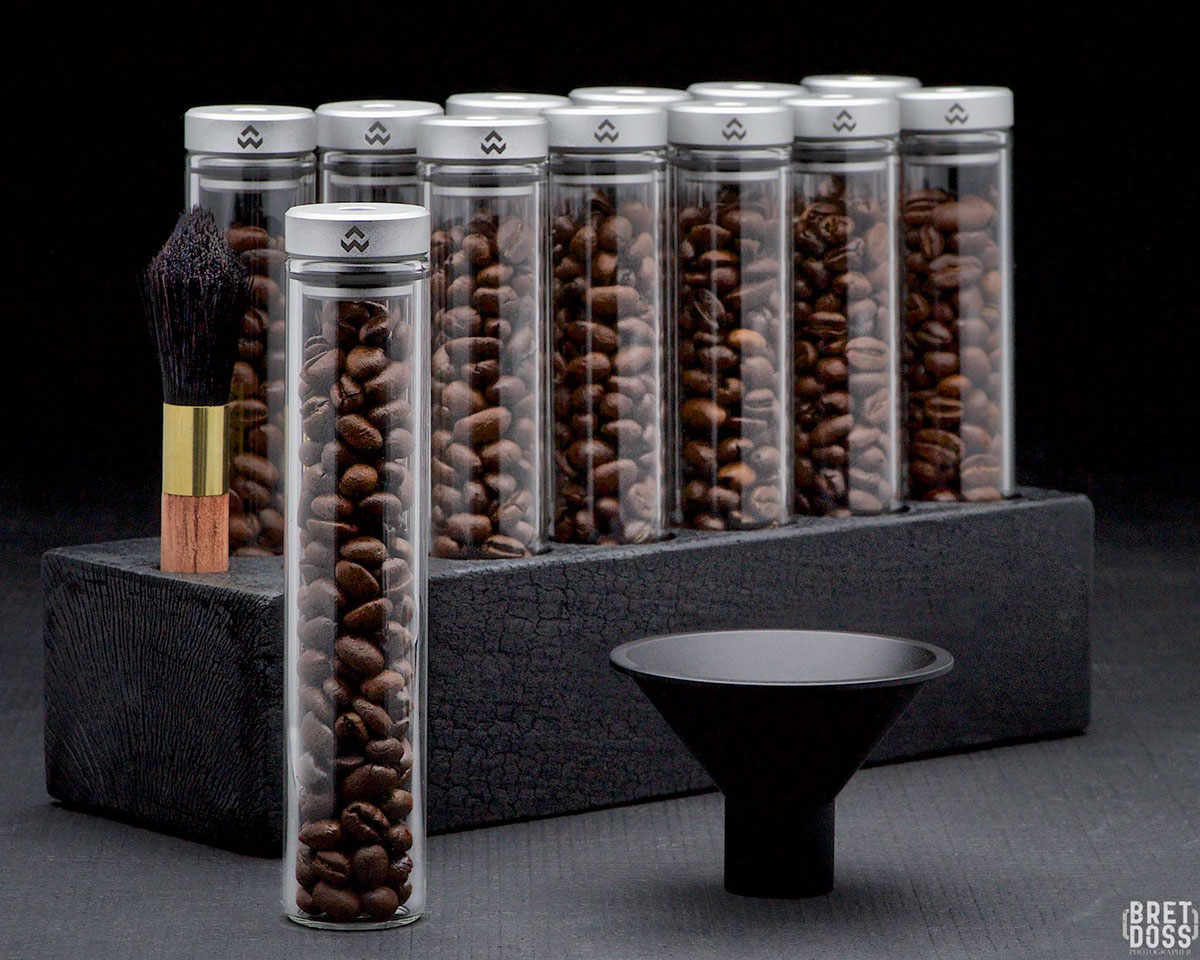
A growing trend in the world of coffee, particularly espresso, is "single dosing." Rather than fill a grinder's hopper with beans that can begin going stale with exposure to air, the idea is to keep the beans sealed and as fresh as possible, only grinding one portafilter basket's worth at a time. In this approach, one weighs out a 'dose' of beans, typically in the 18-22 gram range, though it varies higher and lower depending on drink, taste, roast level, etc. As you can see, this can get as complicated as one wants to make it.
While this single dosing approach has advantages (repeatability, little or no wasted coffee, beans retaining freshness longer), it also has disadvantages, and chief among them is the slowness of the process. Most coffee shops can't use this approach due to the high traffic and volume of sales -- and, with the high quantities of coffee ground and sold each day, the freshness aspect of this process is not as beneficial. However, some coffee shops are adding "slow bars" where they provide the option for carefully prepared pour over brews, or single dose espressos, latte's, cappuccinos and such. Single dosing workflows in those scenarios can make sense, and can be sold as a higher end product/service. You may see this at a non-chain shop.
Currently, though, interest in single dosing is largely among home brewers. I've been making my latte's at home, trying to learn latte art, and fun stuff like that. More recently, I began digging into some of the techniques to make the best espresso I can make: doing so has let me cut down on the usage of sweeteners, since the espresso starts off tasting better. Also, as a home user, wasting coffee can be pricey: grinding exactly what I need when I need it, and keeping the rest of the coffee as fresh as possible for as long as possible is a money saver. Espresso is typically best with beans that have been recently roasted, so extending the useful time from roast is welcome.
There are a variety of ways for the home user to accomplish single dosing and storage. Lyn Weber Workshops has innovated in this area, hoping to provide a method that is also attractive to not only serious home baristas, but also products that can meet the needs of the specialty coffee shops. Their Bean Cellar product is what I have here. I can pre-fill these borosilicate glass containers with the weighed doses of beans on the weekend (it takes about ten minutes or so), and then during the week my morning workflow to get that latte into the cup and ready to drink is much faster. No measuring, weighing: grab a cylinder, dump the contents into the grinder, and get exactly the right amount with no mess.
Lyn Weber Workshops creates products with a design aesthetic that works for me; that has intangible value, as well. As a result, I was compelled to photograph the set new out of the box before I began using them!
Photographically, this product is challenging: shiny glass, anodized (matte finish) caps, semi-shiny black funnel, and black charcoal finish wood block are not the most compatible subject matter. I chose to shoot it on a black surface and background to increase the challenge as well as to present the cellars themselves as the brightest (hero) elements in the images.


all images/content © Bret Doss, all rights reserved


